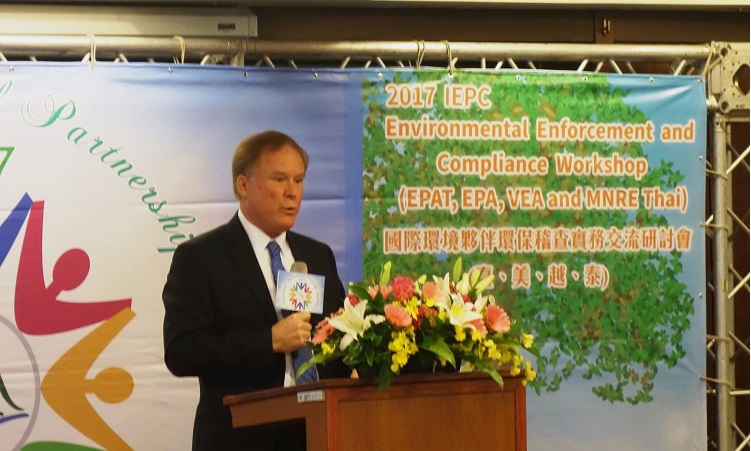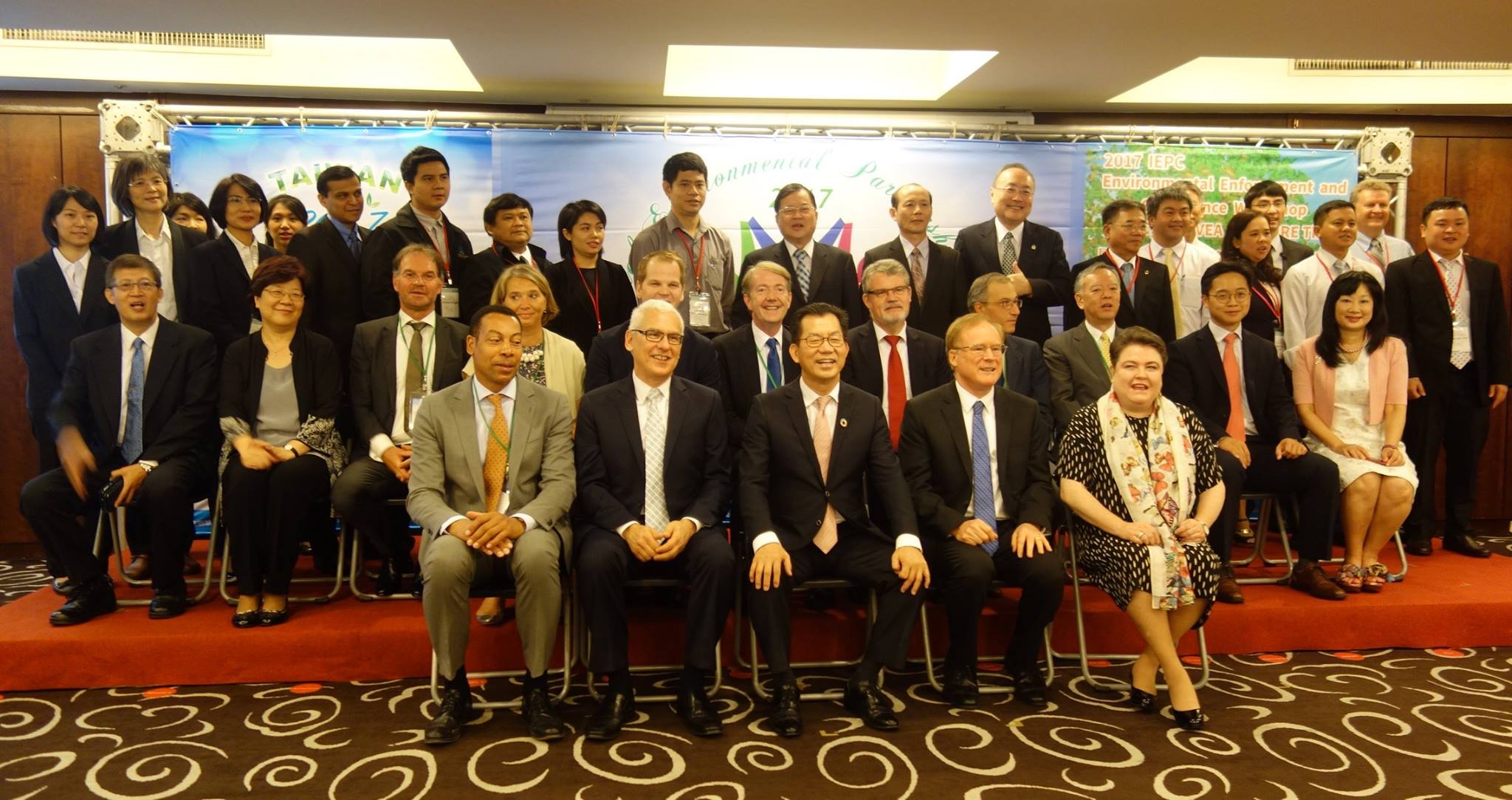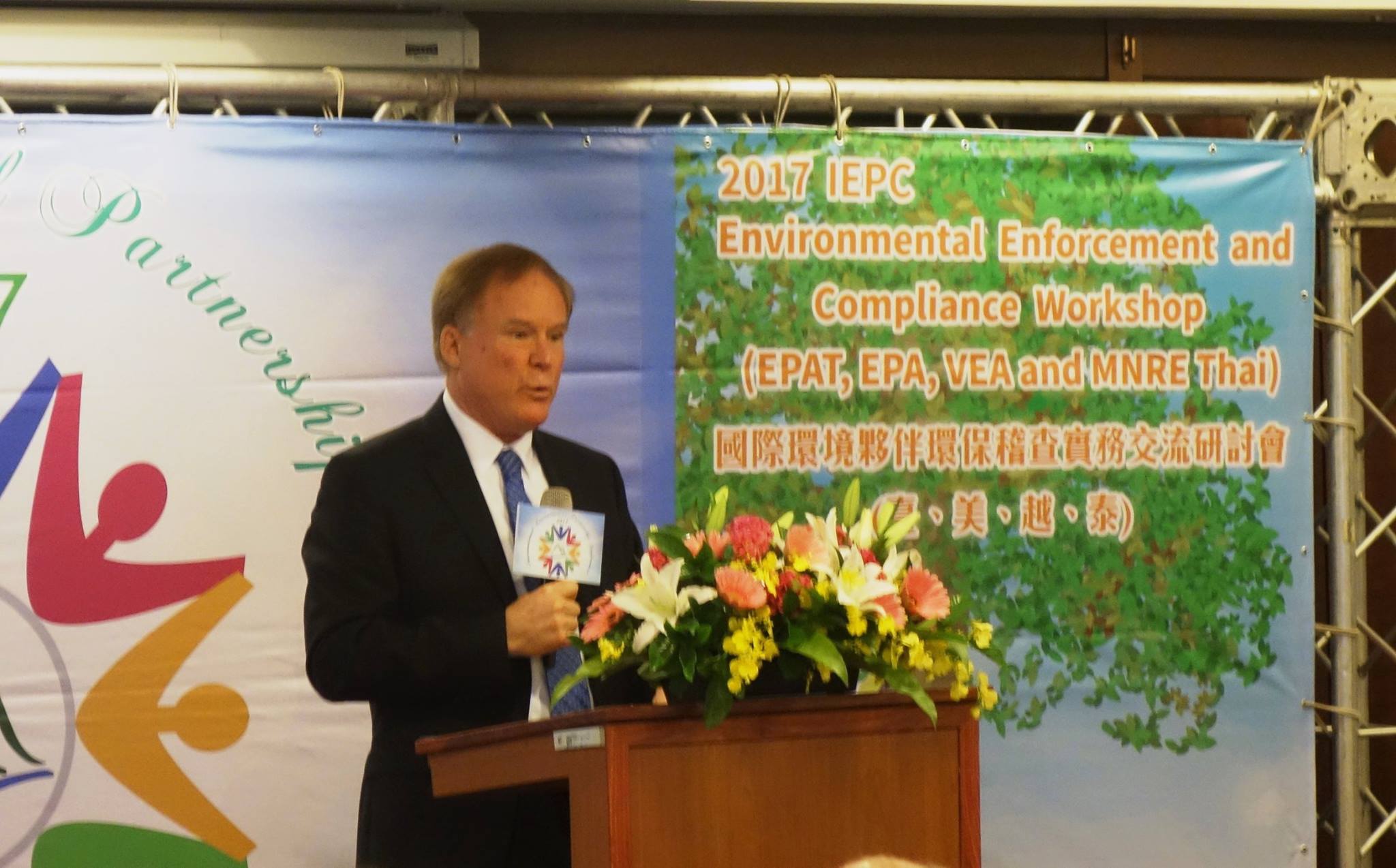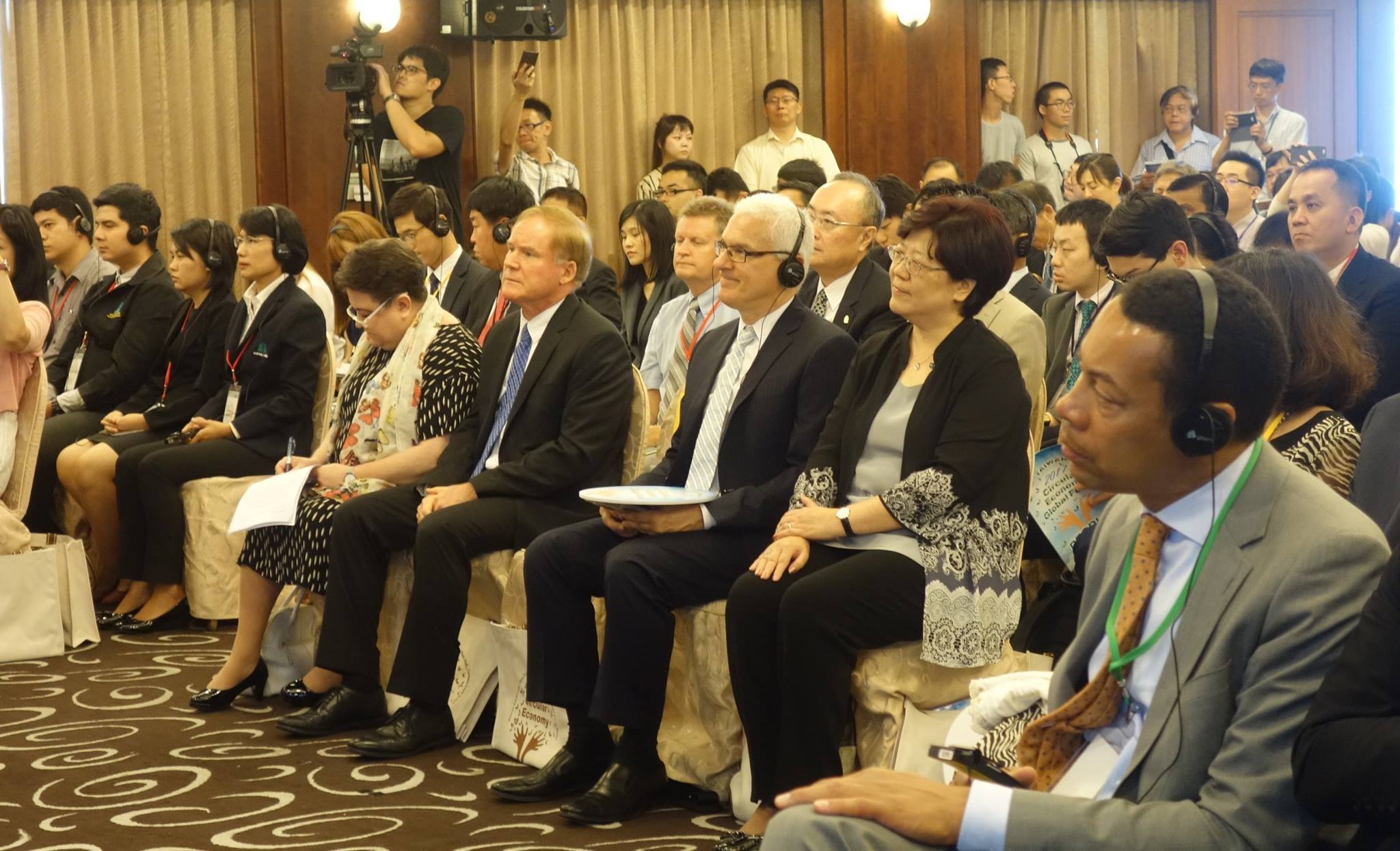(As Prepared for Delivery)
Minister Lee, Director General Hsueh, distinguished guests and colleagues, good morning.
It’s a pleasure to be here today, at the opening ceremony for not one, but two conferences under the U.S.-Taiwan International Environmental Partnership platform. The fact that we are simultaneously convening two workshops – one on the circular economy and one on environmental enforcement – shows the breadth and depth of our engagement with Taiwan on environmental issues.
I am delighted that so many colleagues from the U.S. Environmental Protection Agency are here this week to show their strong support for Taiwan and our international partnerships in this area.
The United States is proud to continue our cooperation with Taiwan through the International Environmental Partnership, or IEP, which was launched by the U.S. Environmental Protection Agency, Taiwan Environmental Protection Administration, and Ministry of Foreign Affairs in 2014.
This year actually marks the 25th anniversary of formal cooperation between the U.S. and Taiwan environmental agencies. Under IEP, our bilateral partnership has expanded significantly, to now include providing technical assistance and pursuing cooperative efforts with countries across Asia and around the world.
IEP programs demonstrate to the global community why Taiwan should be welcomed as a part of the solution to these kinds of problems, and many others.
Our two EPAs have collaborated since 2011 to build global capacity for the environmentally sound management of electronic waste, or e-waste. And now we are cooperating on finding new and innovative ways to reduce, reuse, and recycle across our entire economies.
Developing the circular economy – which is focused on eliminating waste and promoting greater resource productivity – will create economic efficiencies and improve our environment. It will also stimulate the creation of new jobs, a fact that President Tsai Ing-wen recognized when she named the circular economy as one of the “five plus two” innovative industries Taiwan would seek to develop.
This is one area where U.S. and Taiwan companies are also seeing opportunities to cooperate. Just a few months ago, the U.S. Chamber of Commerce held its third annual national circular economy summit, and Taiwan has many distinguished business leaders and scientists who are proponents of the concept of the circular economy and the benefits it can bring. So in the future we look forward to even greater exchanges between the United States and Taiwan – not just between our two environmental protection agencies, but also between our businesses.
And of course we must also acknowledge the hard work and dedication of all the law enforcement personnel who are with us today, particularly those who have traveled to Taiwan from the United States, Thailand, and Vietnam. We know that environmental policies are only valuable and useful to societies when actually enforced. So little of what we learn in these workshops and conferences would be effective in practice without your efforts.
Thank you all for your contributions, and I wish you a productive conference.
















![Video Thumbnail [Recovered]-01](../wp-content/uploads/sites/269/Video-Thumbnail-Recovered-01-1-750x450.jpg)








